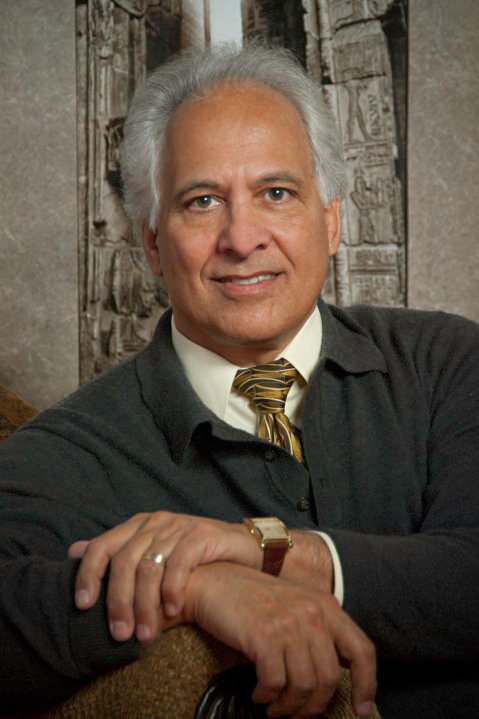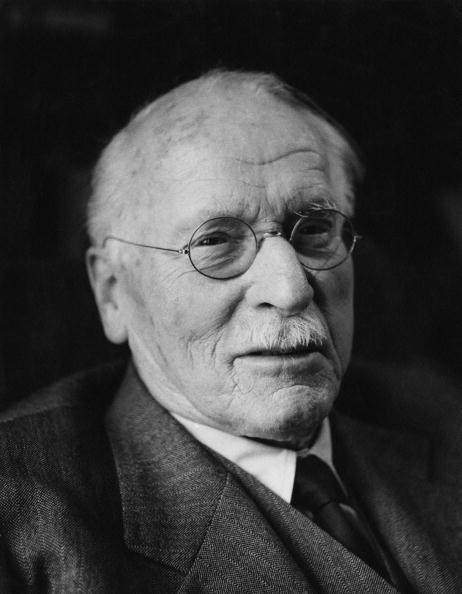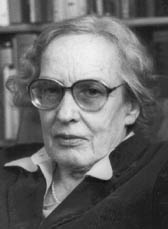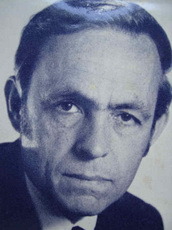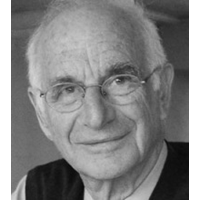"One Book Opens Another"
"Alchemy delights us with the expected. Who would have thought that porcelain and phosphorus, brandy and smelling salts come right out of the alchemical laboratory? Who would have suspected that saints and popes, scholars and artists would be found in the secret societies, guilds and brethren of the alchemical order? But history records the superlative contributions made by alchemists in virtually every field of art and science." 291
"Every alchemists has some lead in her head and some gold in her feet. In this way, she anchors her dreams in earthly reality, but at the same time does not find herself bogged down by the weight of tedious, endless operations. In personal alchemy, human qualities, like the alchemist's metals, either coagulate or sublimate. These are the respective operations of earth and heaven." 282
"Alchemists went to great lengths to keep their secret recipes out of the wrong hands. However, even if their knowledge happened to fall into unscrupulous hands, the secrets would be useless. Without a mind that had gained insight into itself and the ways of Nature through arduous labor, the true power hidden in cryptic spells, incantations and specific operations of the work would be of no use."
"When we think of god we conceive of a transpersonal presence that possesses extraordinary powers. The alchemists believe that humans, being 'little gods', in this world, have the potential to acquire these supernatural abilities. By supernatural, alchemists meant that these powers were already present in the lead of human consciousness, and with careful experiment these abilities can be released, developed and eventually mastered. This feature of the philosopher's stone explains why it was often referred to as a miraculous and supernatural object." 302
from C. G. Jung -
“One does not become enlightened by imagining figures of light, but by making the darkness conscious.”
“In all chaos there is a cosmos, in all disorder a secret order.”
"The meeting of two personalities is like the contact of two chemical substances: if there is any reaction, both are transformed."
"In reality a darkness altogether different from natural night broods over the land. It is the psychic primal night which is the same today as it has been for countless millions of years. The longing for light is the longing for consciousness."
"The decisive question for man is: is he related to something infinite or not? ... In the final analysis we count for something only because of the essential we embody, and if we do not embody that, life is wasted."
"The alchemists sought for that effect which would heal not only the disharmonies of the physical world but the inner psychic conflict as well, the 'affliction of the soul'; and they called this effect the lapis Philosophorum." 153 Jung on Alchemy
And from my second book -
"And what precisely is the goal? In my view, the goal is the creation of a Divine Self, one that enjoys the conscious union of ego and Self, instincts and archetypes femininity and masculinity, psyche and soma - having an active relationship with the unconscious; mastering the technique of active imagination,integrating shadow; recognizing projections and finally achieve "object love" with individuals, the collective, nature and God."
"An important theme is touched on here: the contraction and expansion of consciousness. We find numerous examples of this process in Egypt's history. The ebb and flow of the Nile and its effect on the land, crops and food; the rise and fall of dynasties; gods (Huh and Hauhet) who represent the principles of expansion and contraction; the waxing and waning of pharanoic power; the rising and setting of the sun, as well as the phases of the moon - all are examples of the many ways psychic energy behaves...It is quite possible that the alchemists intuited their famous recipes solve et coagula from this dynamic interplay of opposites." 37
"Individuation means adopting an entirely new orientation to life, and that can be frightening. The old ego really does not know how to adapt - nor should it, since individuation is not about adaptation but about transformation." 130
"We die many deaths before we fully embody Osiris. The infant in us dies to allow the child to be born; the child dies so that the adolescent can further individuate; adolescence gives way to adulthood and, eventually, old age. At every turn there are forces that pull us back and more powerful ones that push us forward. It is the sting of Seth that causes us to shake off the idyllic world of childhood and adopt a mature orientation to life. Where we don't confront and change our childish ways, the world will do it for us. We may be fired from a job, or a wife leaves. In these instances, we feel as if cold water has been thrown in our face; but shock alone is not enough to make a shift to an adult life. The aim is not to destroy the innocence of childhood, but instead to transmute old energies into new ones. Don't eliminate, transform!" 206-207
From Marie Louise von Franz,
Alchemy, an Introduction to the Symbolism and the Psychology -
"The only way the Self can manifest is through conflict: to meet one's insoluble and eternal conflict is to meet God, which would be the end of the ego ...It is the moment where the conflict transcends verbal discussion and becomes an intuitive experience of Oneness behind the two. One is between the righ and the left hand; something is secretly one yet it wants to be torn, to suffer, till something happens which is very difficult to grasp and then a switch takes place onto another level. If you let yourself be torn in the conflict, then suddenly you change, you change from the deepest root of your being and the whole thing has another aspect. It is as though you tortured an animal so much that it jumped onto a higher level of realization, and that can come about in very different forms. You can say that it is an aspect of the symbol of the cross, that one has to be crucified utterly..." 137
"In the final analysis it is consciousness that makes the conflict between the inner and the outer by projecting the one as materially real and the other as psychological real, because we do no really know the difference between material reality and the psyche." 147
"The ego is identical with the Self to the extent that it is the instrument of self-realization for the Self. Only an egotistical inflated ego is in opposition to the Self. In its rightful function the ego is the light in the darkness of the unconscious, and in some ways identical with the Self." 155
"It is a strange thing, if we look at it naively, that in alchemy the end product is something which in the order of nature we look upon as very low, namely a stone, something whose quality is just to be there. A stone neither eats nor drinks nor sleeps, it just remains there for all eternity. If you kick it, then it stays where you kicked it and does not move. But in alchemy this despised thing is the symbol of the goal." 169
"If one is connected with the Self inwardly, then one can penetrate all life situations." 237
"The fire of the passion looks for that which will extinguish it, and that is why the urge for individuation, as long as it is a natural inordinate urge, seeks impossible situations; it seeks conflict and defeat and suffering because it seeks its own transformation." 254
From Edward Edinger, Anatomy of the Psyche -
"The psychotherapeutic process is likewise an 'alternating to improve.' One is thrown back and forth between the opposites almost interminably. But very gradually a new standpoint emerges that allows the opposites to be experienced at the same time..."
"The term 'Philosopher's Stone' is itself a union of opposites. Philosophy, love of wisdom, is a spiritual endeavor , whereas a stone is crude, hard, material reality. The term thus suggests something like the concrete, practical efficacy of wisdom or consciousness....The Philosopher's Stone is thus a forerunner of the modern discovery of there reality of the psyche." 216
"The earliest form of religious expression - which indicate the first separation of the ego from the archetypal psyche - seems to be associated with burial rites. The outstanding example of death as the genesis of religion and consciousness is the elaborate mortuary symbolism of ancient Egypt. This is also clearly the origin of alchemy. The embalming of the dark king transformed him into Osiris, an eternal, incorruptible body. This is the prototype of the alchemical opus, which attempts to create the incorruptible Philosopher's Sotne. The alchemical vessel has been equated with 'the sealed tomb of Osiris, containing all the limbs of the god.' The Egyptian mortuary symbolism is the first great witness to the reality of the psyche." 168- 169
from James Hillman, Alchemical Psychology -
"...let us talk as alchemists, as if we were talking alchemically. Then we can talk alchemy, even the old mad terms, because then we will not be using them as literal substitutions for our concepts, employing them as a new set of categories. It is not the liberal return to alchemy that is necessary but a restoration of the alchemical mode of imagining. For in that mode we restore matter to our speech - and that, after all, is our aim: the restoration of imaginative matter, not of literal alchemy."18
"Alchemy was not merely gold-making for the benefit of the alchemist and his patron. Within the labor was the vision to bring the world itself into a golden age, fulfilling its desire for perfection, a soul-making of the world itself." 35
"Alchemy, however, suggests these feelings of emptiness are indications of a vessel forming. The void is building a shape, a particular shape. Perhaps several vessels. Modes of containing. Modes of measuring. Modes of differentiating. The reality of the psyche is forcing its way into life and reshaping one's life by means of the feelings of emptiness." 46
"Remember: it is the nature of each bit of psyche to want to persist as it is. What success wants is to continue as it is. The drive to persist and resist alternation is the very nature of substance...Thus there will always be a profound and natural resistance to the psyche's own innate movement. That alchemy imagines movement in soul by means of the repulsive rot of putrefactions and the killing torture of mortification shows how obdurate and compacted, shall we say stone-like, is the stuff of the psyche and how hard indeed it is to bring about change." 342
"All that other people are and the world is, from rivers and elephants to teacups and toasters is essentially what I call 'me' as part of an ensouled anima mundi and yet utterly depersonalized as molecules dancing in dry air." 248
